Or…how not to make as many mistakes as I did.
- Get a mentor. There is just too much information out there. Every question you ask will be answered differently by every beekeeper you ask. Find someone that has bees that are thriving, and ask to work with them. You’ll develop your own methods too, as time goes by, but in the beginning the help of one or two people is worth it’s weight in gold. If you go online and post questions to forums, you will wind up so confused and disoriented that you may just give up bees altogether. So go ahead and read online, but go to your mentor for help.
- Join a bee club. It’s one thing to read books and to watch charts and know when the “nectar flow” is on, or what the price of honey is in your area…it’s much better to have your bee club president tell you what you should be doing this month, what you need to be looking for this month, and what you need to start to do to prepare for next month. It’s also good to talk to other people in YOUR area because what you read online may have little bearing in your state. One example is southern beekeepers over-wintering their bees.They may have no concept of what northern beekeepers deal with – the local club does. You’ll also meet people that are coming up with great new designs, innovations, inventions and ideas.
- Read as much as you can. There are many good books and you’ll pick things up from every one – but be careful about believing everything you read. There are also a lot of crappy books out there. So far I’ve read about 18 books on beekeeping and only two of them have really been truly helpful. You can almost always get SOMETHING out of every book you read but ask your mentor and get a GOOD book. The Beekeepers Handbook (Sammataro and Avitabile) and Honey Bee Biology and Beekeeping (Dewey Caron) have helped me the most.
- Have extra equipment. However many hives you decide to have, consider buying double that amount of hives. Have at LEAST one extra set-up. Your bees will swarm. You might have to split. You might get called when your neighbors know you have bees and they see a swarm. You’ll use all that equipment that you bought as a “starter” and you’ll be in a bad spot if you don’t have more equipment when all the above happens. My first year I had to do a split AND also captured a swarm. Ugh. I went from one hive to three within 5 months.
- Get a thick skin. Many people on Facebook bee forums are mean. Many are helpful. Pick one that is heavily moderated by a beekeeping leader that will block or eliminate those that are nasty or unhelpful. And as you learn more, don’t be condescending, nasty or sarcastic. Be helpful.
- You will be stupid. You will never feel so stupid as you do the first three to six months of beekeeping. You will do very stupid things. You will ask stupid questions. You will have heard that there are no stupid questions. This is not true in beekeeping. You will absolutely KNOW something but you’ll ask it anyway, and when you hear the answer you’ll feel stupid. Ask anyway. Keep asking. It eventually clicks and all starts to make sense.
- Hive placement. Place your hive in a way that you can walk all around it. Raise it more than a few inches off the ground for your own ease and comfort (and it helps to not have to constantly clear weeds from the entrance).
- Have a plan. Your first inspections will be really clumsy. Try to have a plan. When you take off the top where will you put it? Have something to cover the boxes you take off (like a pillow case). Where will you put the next box? Where will you put the feeder and your tools and your smoker? Think about all of this before you’re standing in a mess.
- Slow and steady wins the race. Go slowly. Move slowly. Don’t be frenetic and jerky. Pull frames very slowly out of the box and don’t yank or bang them. Consider filming yourself doing an inspection and watch later. You may be surprised. I was shocked at how many times I whacked the hive with my knee, or turned a frame over too fast, or almost dropped them. It’s embarrassing…but you may not realize it until you see yourself doing it.
- Don’t forget to look for eggs. Look for eggs. Look for eggs. You’ll get so wrapped up in all the stuff that is going on in your hive you might completely forget this super important step – to know if you have a queen in there that is working.
- Study pictures of things before going in the hive. What does pollen look like? What does capped brood look like? What does honey look like? What does queen or swarm cells look like? Learn what they look like before you start pulling frames and wonder what you’re seeing.
- Do inspections WITH someone a few times in the first few months. This is unbelievably helpful!! I did them myself for the first few months and the first time someone came and helped me, it was a massive light bulb over my head. So much made sense. This was so helpful, I can not suggest it enough. Do some yourself and then get someone experienced to come and do one with you.
- Find a good bee supply company. A good one with a good customer support system is really helpful – especially when you’re ordering your first equipment. If they know you’re new and they are a good company they will help you here – a lot!! They will talk you through the items you need, will need but don’t need NOW, the different options you can get, and the pros and cons of each. Talk to them. Let them help you.
- Don’t buy hives because they are really cute. Buy hives that have the best features. So why do I say this? I say this because of this —————> It’s adorable isn’t it?? I LOVE IT! Love it! But there are a LOT of problems with this. Forgo cute and stick to functional.
- Learn how to use the hive tools. They seem easy enough. This scrapes, this pokes, this pulls – but you’ll be surprised at how they should be used. Work with a beekeeper and watch how they use the tools.
- Bee stings hurt. Don’t believe beekeepers that strut about and tell you they don’t. They hurt and can cause swelling and pain literally for weeks. Really. They hurt. Often not the initial sting but the aftermath can be awful. Avoid stings. Use a suit and a veil and gloves. One well known book tells you over and over not to wear gloves because you’ll fumble with them and could drop a frame. Ignore that idiot. Wear your gloves. You’re new and you’re already clumsy. Try banging a frame as you lift it out with no gloves. Or a million other things you’ll do. Wear them. And your suit and veil all the time. Maybe when you are super experienced and more confident this will change, but for YOU new beekeeper? – SUIT UP!
- Don’t read the horror stories. Don’t read all the endless things online about stinging and swelling and allergies and all that overly dramatic garbage. You’ll be absolutely positive you are suffering anaphylactic shock and are allergic to your bees. You probably aren’t.
- Use your smoker. I really hate smoke – it bothers my lungs a lot. Always has. But I always light it and have it nearby. As I get better at this I use it much much, much less but in the beginning it will build your confidence to puff and see them all go in or down. That confidence will help you, so take what you can get in the beginning. You’ll be a bundle of nerves at first. It’s very nerve wracking. The buzzing. The pinging at you. The crawling all over you. It’s a little creepy. You’ll be anxious. Keep the smoke near you to help if you need it.
- Puff the smoke in, then wait a bit. I was already six months into doing inspections and using my smoker when I attended a bee club apiary inspection. Our president, Tom, puffed a little smoke in the opening and around the top and then set it down while he prepared his tools. This small hint was hugely helpful. Puff a little smoke in and then wait a minute or two. This helps settle the bees MUCH BETTER than puffing in and immediately lifting off your top! Small hint, but made a huge difference for me.
- Sugar water feeders. During an inspection, don’t take off your sugar water feeder and leave it uncovered on the ground. You’re welcome.
- Don’t lose friends! Most people’s eyes will glaze over when you start talking about your bees. Be kind. Keep it short. This does NOT apply to your beekeeping friends. With them, make sure you interrupt them a lot so you can talk about YOUR bees too.
- Keep a journal. However you do it, you need to log what you see and what is happening with your hives. Perhaps record your sessions. Then watch and write them up. You’ll forget a lot if you don’t. You can also create cheat sheets for when you are at the hive. I created my own that simply need me to only mark an X in the boxes (spot queen? eggs? honey? pollen? etc.). When I get back to the house I can then use these to log it all into my journal. I also use a bee program online so I always have the info at my fingertips.
- Be a carpenter. You need to be a woodworker and a carpenter. Sorry. You do. So many things you need you can not buy. I have no idea why this is. I am completely baffled and perplexed by this. Your bee club president will say things like “just buy 18 gauge aluminum wire and tack it into this bevel and leave a reveal at the top.” Um. What? Sob. If you have no ability in this area all is not lost. Find a bee club friend and BEG him (or her) to help you make these things, or pay him to do it for you. Otherwise you have no choice but to sneak into their bee shed at 2 am and steal their stuff. Make sure you leave money and a thank you card.

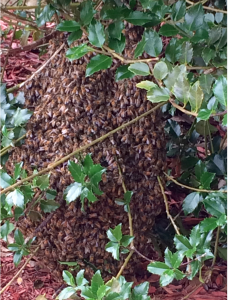
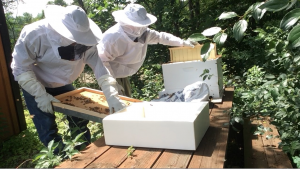
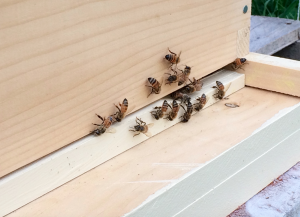
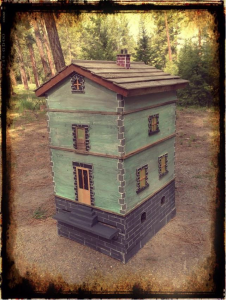
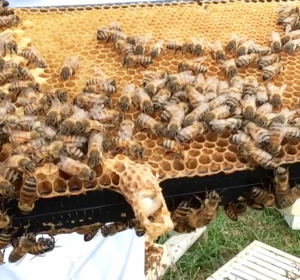
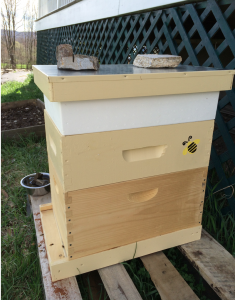

Recent Comments